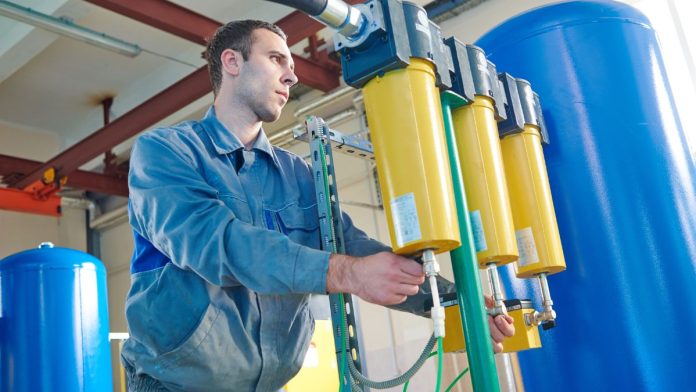In an era where environmental concerns are at the forefront of our minds, the quest for clean and safe drinking water has become a paramount issue for homeowners. Contaminants ranging from chlorine and lead to microscopic pathogens can compromise the quality of our tap water, posing health risks and reducing the overall enjoyment of our water consumption. This ultimate guide delves into the crucial world of residential water filtration services, outlining their importance, exploring the various systems available, and offering insights into making informed decisions for your home’s water quality needs.
The Critical Importance of Water Filtration
Water quality is not a mere convenience; it’s a fundamental health requirement. Modern industrial activities, agricultural runoff, and aging water distribution infrastructure can introduce a myriad of harmful contaminants into our water supply. These pollutants can have immediate effects, such as gastrointestinal illnesses, as well as long-term health impacts, including increased risks of cancer and organ damage. A robust water filtration system serves as a defensive barrier, ensuring that the water in your home remains pure, safe, and pleasant to use.
Exploring Types of Residential Water Filtration Systems
A variety of water filtration systems are available, each designed to target specific contaminants and meet different household needs. Here’s a more detailed look:
Activated Carbon Filters: These systems are known for their efficiency in removing chlorine, volatile organic compounds (VOCs), and chemicals responsible for tastes and odors. They are a popular choice for improving the overall sensory quality of water.
Reverse Osmosis (RO) Systems: Offering one of the most comprehensive filtration solutions, RO systems can remove up to 99% of dissolved solids, including fluoride, lead, and a variety of pathogens. The process involves water being pushed through a semipermeable membrane, leaving contaminants behind.
Ultraviolet (UV) Purification Systems: For homes concerned with biological contaminants, UV purification offers a chemical-free method to kill bacteria, viruses, and other microorganisms, ensuring water is microbiologically safe.
Ion Exchange Systems (Water Softeners): These systems are ideal for addressing hard water, which can damage appliances and leave deposits on fixtures. By exchanging minerals like calcium and magnesium for sodium or potassium ions, water softeners prevent scale and improve water quality for bathing and appliance use.
Sediment Filters: Serving as the first line of defense, sediment filters remove physical impurities such as dirt, silt, and rust. They are often used in conjunction with other filtration systems to protect and extend their lifespan.
In-Depth Benefits of Installing a Water Filtration System
While the immediate benefit of cleaner tasting and smelling water is evident, the advantages of installing a residential water filtration system extend much further:
Enhanced Health Protection: By removing contaminants, a filtration system can significantly reduce the risk of illnesses associated with harmful chemicals and microorganisms.
Economic Efficiency: Over time, the investment in a water filtration system pays off by eliminating the need for bottled water and reducing healthcare costs associated with waterborne diseases.
Environmental Sustainability: Reducing reliance on bottled water also diminishes plastic waste, contributing to a healthier planet.
Preservation of Plumbing and Appliances: Softened and filtered water can prolong the life of plumbing systems and appliances by preventing scale buildup and corrosion.
How to Choose the Right Water Filtration System for Your Home
Selecting the ideal water filtration system requires a tailored approach. Begin by testing your water to identify specific contaminants. Consider the flow rate needed to accommodate your household’s water usage and evaluate the space available for installing the system. Research and compare different technologies, keeping in mind initial costs, ongoing maintenance requirements, and replacement filter expenses. Consult with water quality experts or filtration service providers who can offer personalized recommendations based on your needs.
Addressing Common FAQs on Residential Water Filtration
What’s the best way to test my water quality?
You can use at-home test kits for a basic understanding, but for comprehensive analysis, consider sending a water sample to a certified laboratory.
How do I maintain my water filtration system?
Maintenance varies by system type but generally includes regular filter changes, system sanitization, and periodic checks by professionals to ensure optimal performance.
Can water filtration systems remove all contaminants?
No system can remove 100% of all contaminants, but high-quality multi-stage systems can significantly reduce a wide array of pollutants.
Is filtered water better than bottled water?
Filtered water offers a more sustainable, cost-effective, and often safer alternative to bottled water, which can also be subject to contamination and lacks the benefits of home filtration systems.
The journey to ensuring that your household enjoys pure, safe, and tasty water starts with understanding the pivotal role of residential water filtration services. By exploring the types of systems available, recognizing their benefits, and knowing how to choose the right one for your home, you can take a significant step toward enhancing your quality of life and health. Remember, the investment in a water filtration system is an investment in your home’s future, safeguarding not just your water but also your peace of mind.








